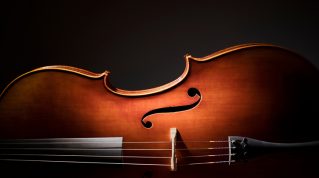Almost a quarter of secondary schools are not meeting a new government expectation for key stage 3 pupils to be taught an hour of classroom music a week, new survey data suggests.
The expectation was introduced in September as part of the government’s national plan for music, which promised to help “unleash the creativity of children” with a “renewed emphasis on opportunities for all”.
A similar expectation was also introduced for key stages 1 and 2.
But a Teacher Tapp survey of 1,256 senior leaders in state secondary schools this month found that 16 per cent were teaching for less than an hour a week, with 2 per cent not teaching it at all.
A further 5 per cent used a “carousel” system, which usually means teaching pupils for only part of the year.
Overall, two-thirds said they met the weekly commitment of one hour, with 7 per cent saying that they taught for more than an hour.
Experts have pointed to the recruitment crisis, accountability pressures and funding as reasons behind the gap.
‘Insufficient funding’
Paul Whiteman, general secretary at the NAHT school leaders’ union, said the plan’s aims were “not backed with sufficient funding or resources to make them a reality”.
He added: “In addition, the time for teaching and learning is finite and the government consistently imposes additions, including non-statutory expectations, without creating the extra time needed in the curriculum.”
Paddy Russell, headteacher at Ladybridge High School in Bolton, said that, while his school met the commitment, the pool of music teachers was now “very small”.
Just 27 per cent of the required number of music teachers were recruited last year, down from 80 per cent in 2019-20.
The government has missed the target for nine of the past 10 years, and is on track to miss it again this year.
Pepe Di’Iasio, general secretary at the ASCL school leaders’ union, said it was “disadvantaged pupils who are the worst affected because they are often at schools where teacher recruitment is most difficult and their families cannot afford the cost of private lessons outside school time as many better-off families do”.
Private schools more likely to meet target
Nearly 30 per cent of private schools said they taught music for more than an hour a week, compared to just 7 per cent of state schools.
An Ofsted subject report on music last year found there was “considerable variation” in the amount of music curriculum time in key stage 3.
In just under half of the schools visited, leaders had not made sure that pupils “had enough time to learn the full breadth of the national curriculum”.
The hourly pledge formed part of a request for schools to revise or create a school music development plan by September last year “at the latest”.
The plan should set out how it would provide access to lessons, develop a school choir, space for rehearsals and a termly school performance.
The Department for Education admitted it would “take time to realise” the hourly pledge in schools. It said it would continue to monitor teaching time, including through school leader panel surveys.
But Stuart Drake, the Independent Society of Musicians’ legal services director, said the plan’s ambitions “are going to struggle to be realised” with the current English Baccaleraute accountability measure, which does not include music.
He warned that “too many students” were missing out and also called for increased funding and a reform of progress 8.
Warning over music hubs
The DfE said its national network of music hubs would continue to provide support for schools.
But last year, the ISM warned against plans to slash the number of music hubs from 118 to 43 from September.

Deborah Annetts, ISM chief executive, said in November that “no evidence” had been “forthcoming” from the government about how reducing hub numbers would benefit schools.
This month, schools minister Damian Hinds said the hubs would work across a “wider set of music education partnerships” to bring “significant benefits to children, young people and schools”.
The hubs will “be able to be more strategic, building stronger partnerships with schools, academy trusts, local authorities and others, resulting in high quality support in every local area and to ensure there are no local ‘cold spots’ where access to provision is limited”.
This month, Arts Council England decided where the new hubs would be. They will be announced in early May, after the local elections.















Music Services(hubs) need to be funded as schools then all specialist music education ( including instrument tuition) would be free at the point of delivery. All the wonderful specialist musicians in our Country would have security and the amount of tuition in schools would soar.